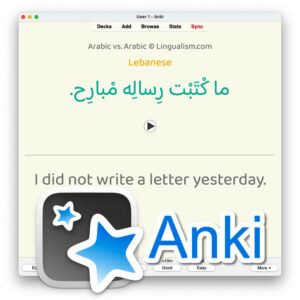To provide the best experiences, we use technologies like cookies to store and/or access device information. Consenting to these technologies will allow us to process data such as browsing behavior or unique IDs on this site. Not consenting or withdrawing consent, may adversely affect certain features and functions.
The technical storage or access is strictly necessary for the legitimate purpose of enabling the use of a specific service explicitly requested by the subscriber or user, or for the sole purpose of carrying out the transmission of a communication over an electronic communications network.
The technical storage or access is necessary for the legitimate purpose of storing preferences that are not requested by the subscriber or user.
The technical storage or access that is used exclusively for statistical purposes.
The technical storage or access that is used exclusively for anonymous statistical purposes. Without a subpoena, voluntary compliance on the part of your Internet Service Provider, or additional records from a third party, information stored or retrieved for this purpose alone cannot usually be used to identify you.
The technical storage or access is required to create user profiles to send advertising, or to track the user on a website or across several websites for similar marketing purposes.



Kathy –
I love these!
Tom (verified owner) –
Maybe the best language learning resource I have ever found for any language, no exaggeration. Has completely reinvigorated my ammiya learning!
Jess (verified owner) –
This is a great help for learning Lebanese dialect, great work. Lingualism has an excellent approach. I’ve been a language educator and course director for 20 years so I know a bit. Most publishers put out works to teach on a course, with fillers and lots of talk about the language. Lingualism puts out works which actually enable you to master an Arabic dialect.
My criticism is that you need to learn the broken plurals as well, which means I have spent a long time making separate entries for these plurals.
Sam –
Simply the best material you will find for learning amiyya remotely. Absolutely worth the purchase!
Nina (verified owner) –
Enjoying the materials very much. The books and flashcards are absolutely worth the purchase.
Rommel (verified owner) –
I love flashcards as I have found them to be the best way for me to learn. These flashcards are very well done. My wife and I enjoy learning them and coming up with mnemonics together. This is my first time working with Anki so it’s been a bit of a learning curve for me for the first couple of days. My recommendation would be in the ordering of the decks. I have had to rearrange the order of the decks because I wanted to start with “Greetings and Common Expressions” first, then “Pronouns” and “Question Words”. Personally I think it makes sense, especially for the beginners, to have these as one of the first decks but instead I found them to be one of the last. Other than what I consider to be a bit of an inconvenience, I think this is probably one of the best materials out there on learning the Levantine Arabic dialect. Thank you very much for this product. I highly recommend it.
Corey (verified owner) –
Fantastic! I live in Beirut and have been learning Lebanese Arabic for about a year. As anyone studying Levantine Arabic knows, it’s very challenging to find resources. And since, technically, Lebanese, Jordanian, Palestinian, and Syrian (and the subsets of each) are all “Levantine”, it can be depressing to find out that what you’ve been learning is misunderstood in your new context.
If you plan to speak with Lebanese people, this is a fantastic resource. More than 5,000 unique vocab items, each one with two way cards so you can study from Arabic->English or vice versa. Easy to work your way through piece by piece by simply moving new cards into your existing decks. All cards have both Arabic and transliterated Arabic (although I don’t like their transliteration system, so I quickly replace with my own) and fantastic pronunciation audio with a Lebanese accent… so you won’t end up getting laughed at for sounding too Syrian like I did when I first came here!
Of course, if you learn the pronunciation differences between dialects and stay mindful that not every word will transfer, you could easily use this resource to speak with Syrians or Jordanians or Palestinians. Just keep in mind the audio may not be totally accurate and you will need to check with your friends to see if a word is commonly used in that region.
Miles (verified owner) –
As with all Lingualism products, I really love this. It’s very comprehensive, it makes memorization easy and comfortable, and it’s easy to use. However I just have one bad thing to say about it. I’m not sure why I even feel this way, but I really dislike the native speaker’s accent for this deck. It just is kind of uncomfortable to listen to. However that’s just my personal opinion, and it really doesn’t take away from the quality of it. If you are learning Levantine Arabic, this and the beginner’s dictionary are definitely some things you should get to help you study
Philip –
I don’t like the fact that some important words and phrases come up to late in this deck.